In 2000, Daniel Suelo left his life savings-all thirty dollars of it-in a phone booth. He has lived without money-and with a newfound sense of freedom and security-ever since. The Man Who Quit Money is an account of how one man learned to live, sanely and happily, without earning, receiving, or spending a single cent. Suelo doesn’t pay taxes, or accept food stamps or welfare. He lives in caves in the Utah canyonlands, forages wild foods and gourmet discards. He no longer even carries an I.D. Yet he manages to amply fulfill not only the basic human needs-for shelter, food, and warmth-but, to an enviable degree, the universal desires for companionship, purpose, and spiritual engagement. In retracing the surprising path and guiding philosophy that led Suelo into this way of life, Sundeen raises provocative and riveting questions about the decisions we all make, by default or by design, about how we live-and how we might live better.
The Man Who Quit Money Paperback
KSh 1,000.00
In 2000, Daniel Suelo left his life savings-all thirty dollars of it-in a phone booth. He has lived without money-and with a newfound sense of freedom and security-ever since. The Man Who Quit Money is an account of how one man learned to live, sanely and happily, without earning, receiving, or spending a single cent. Suelo doesn’t pay taxes, or accept food stamps or welfare. He lives in caves in the Utah canyonlands, forages wild foods and gourmet discards. He no longer even carries an I.D. Yet he manages to amply fulfill not only the basic human needs-for shelter, food, and warmth-but, to an enviable degree, the universal desires for companionship, purpose, and spiritual engagement. In retracing the surprising path and guiding philosophy that led Suelo into this way of life, Sundeen raises provocative and riveting questions about the decisions we all make, by default or by design, about how we live-and how we might live better.
1 in stock
Related products
-
Oxford Textbook of Clinical Pharmacology and Drug Therapy
KSh 2,955.00Drug therapy is a fundamental part of general internal medicine, and is as demanding a process as diagnosis. The four sections of this practical guide cover the principles of clinical pharmacology, including drug development, use, and adverse reactions; the practical management of diseases with drugs; drug prescription; and over 300 commonly used drugs in a separate pharmacopoeia, identifying their generic names, usage, modes of action, properties, and effects. -
District Laboratory Practice in Tropical Countries
KSh 21,240.00This new edition includes an update on HIV disease/AIDS, recently developed HIV rapid tests to diagnose HIV infection and screen donor blood, and current information on antiretroviral drugs and the laboratory monitoring of antiretroviral therapy. Information on the epidemiology and laboratory investigation of other pathogens has also been brought up to date. Several new, rapid, simple to perform immunochromatographic tests to assist in the diagnosis of infectious diseases are described, including those for brucellosis, cholera, dengue, leptospirosis, syphilis and hepatitis. Recently developed lgM antibody tests to investigate typhoid fever are also described. The new classification of salmonellae has been introduced. Details of manufacturers and suppliers now include website information and e-mail addresses. The haematology and blood transfusion chapters have been updated, including a review of haemoglobin measurement methods in consideration of the high prevalence of anaemia in developing countries.
-
Qualitative Research Design
KSh 7,700.00Qualitative Research Design: An Interactive Approach provides researchers and students with a user-friendly, step-by-step guide to planning qualitative research. It shows how the components of design interact with each other, and provides a strategy for creating coherent and workable relationships among these design components, highlighting key design issues. Written in an informal, jargon-free style, the new Third Edition incorporates examples and hands-on exercises.
-
So…You Think You Know The Bible? Mass Market Paperback
KSh 495.00What two people was time altered for? What man got his head nailed to the ground? What two Old Testament characters never died? If you like Bible trivia, you’ll love So. . .You Think You Know the Bible? Packed with more than 700 mind-stretching questions-no fluffy stuff here!-this brand-new trivia challenge will fascinate and entertain readers for hours. Thirty categories of 25 questions each-including “Who’s Who,” “Biblical Geography,” and “We Dare You to Answer These!”-are accompanied by a scoring system to track your success. More great Bible trivia from Barbour!
-
The Ethnographic Imagination
KSh 1,200.00In this book Paul Willis, a renowned sociologist and ethnographer, aims to renew and develop the ethnographic craft across the disciplines. Drawing from numerous examples of his own past and current work, he shows that ethnographic practice and the ethnographic imagination are vital to understanding the creativity and irreducibility of experience in all aspects of social and cultural practice.
Willis argues that ethnography plays a vital role in constituting ‘sensuousness’ in textual, methodological, and substantive ways, but it can do this only through the deployment of an associated theoretical imagination which cannot be found simply there in the field. He presents a bold and incisive ethnographically oriented view of the world, emphasizing the need for a deep-running social but also aesthetic sensibility. In doing so he brings new insights to the understanding of human action and its dialectical relation to social and symbolic structures. He makes original contributions to the understanding of the contemporary human uses of objects, artefacts and communicative forms, presenting a new analysis of commodity fetishism as central to consumption and to the wider social relations of contemporary societies. He also utilizes his perspective to further the understanding of the contemporary crisis in masculinity and to cast new light on various lived everyday cultures – at school, on the dole, on the street, in the Mall, in front of TV, in the dance club.
This book will be essential reading for all those involved in planning or contemplating ethnographic fieldwork and for those interested in the contributions it can make to the social sciences and humanities.
-
The $100 Startup: Reinvent the Way You Make a Living, Do What You Love, and Create a New Future
KSh 1,495.00“Thoughtful, funny, and compulsively readable, this guide shows how ordinary people can build solid livings, with independence and purpose, on their own terms.”—Gretchen Rubin, author of the #1 New York Times bestseller The Happiness Project
Still in his early thirties, Chris Guillebeau completed a tour of every country on earth and yet he’s never held a “real job” or earned a regular paycheck. Rather, he has a special genius for turning ideas into income, and he uses what he earns both to support his life of adventure and to give back.
Chris identified 1,500 individuals who have built businesses earning $50,000 or more from a modest investment (in many cases, $100 or less), and focused on the 50 most intriguing case studies. In nearly all cases, people with no special skills discovered aspects of their personal passions that could be monetized, and were able to restructure their lives in ways that gave them greater freedom and fulfillment.
Here, finally, distilled into one easy-to-use guide, are the most valuable lessons from those who’ve learned how to turn what they do into a gateway to self-fulfillment. It’s all about finding the intersection between your “expertise”—even if you don’t consider it such—and what other people will pay for. You don’t need an MBA, a business plan or even employees. All you need is a product or service that springs from what you love to do anyway, people willing to pay, and a way to get paid.
Not content to talk in generalities, Chris tells you exactly how many dollars his group of unexpected entrepreneurs required to get their projects up and running; what these individuals did in the first weeks and months to generate significant cash; some of the key mistakes they made along the way, and the crucial insights that made the business stick. Among Chris’s key principles: If you’re good at one thing, you’re probably good at something else; never teach a man to fish—sell him the fish instead; and in the battle between planning and action, action wins.
In ancient times, people who were dissatisfied with their lives dreamed of finding magic lamps, buried treasure, or streets paved with gold. Today, we know that it’s up to us to change our lives. And the best part is, if we change our own life, we can help others change theirs. This remarkable book will start you on your way.
-
Netter’s Clinical Anatomy, 5th Edition
KSh 10,050.00Offering a targeted, concise approach to clinical anatomy, Netter’s Clinical Anatomy, 5th Edition, is a portable, easy-to-read text that bridges normal anatomy to common clinical conditions. It features nearly 600 superb illustrations by Drs. Frank H. Netter and Carlos Machado that provide essential descriptions of anatomy, embryology, and pathology to help you understand their clinical relevance. Authored by John Hansen, PhD, an Honored Member of the American Association of Clinical Anatomists, this visually stunning text covers and reviews the sizable area of human anatomy and pathology in a quick, easy-to-grasp format.

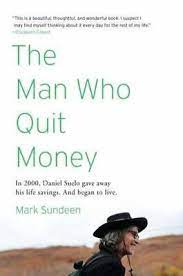


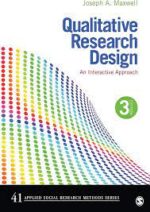
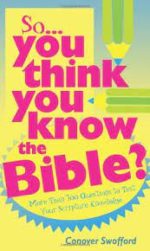
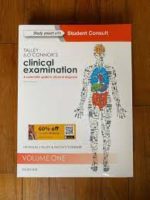
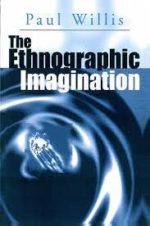

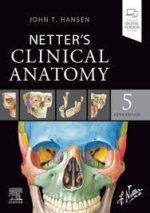
Be the first to review “The Man Who Quit Money Paperback”